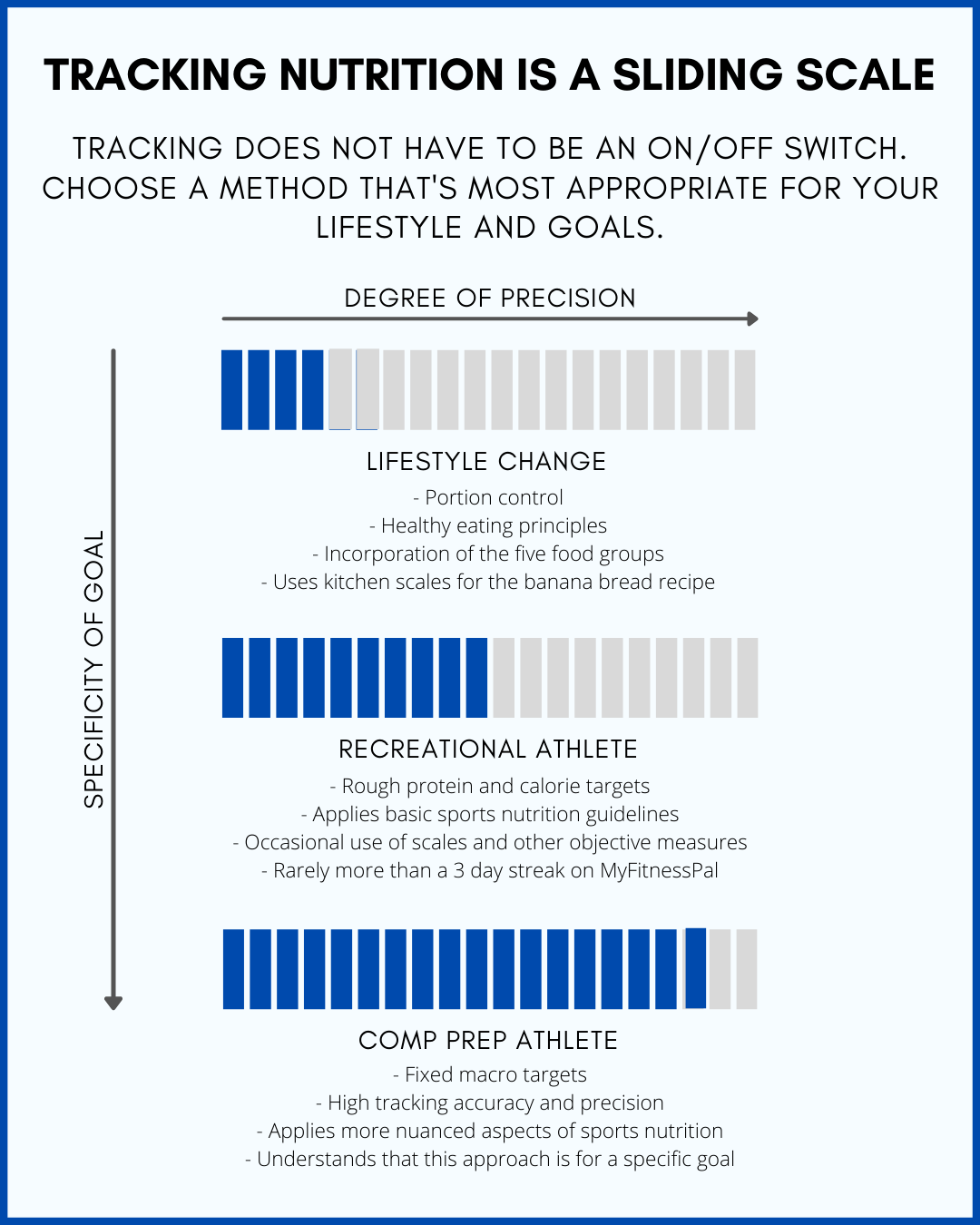Tracking “To The Gram” Isn’t Mandatory
Nutrition is often viewed in a black and white context; however, we like to view nutrition in different shades of grey. The dietary strategies someone chooses to implement should be unique to them, therefore the approach they take really does “depend” on the context.
Let’s take tracking for example. The black and white interpretation of this would be a neurotic and all-consuming approach on one hand, and a completely unstructured process on the other.
This is just not the case.
We like to use tracking as an umbrella term to describe the modality that someone uses to address their nutrition. Arguably, an overarching structure needs to be implemented to follow the underlying principles of quality nutrition (e.g. the five food groups).
This concept is demonstrated in the above infographic. As the specificity of a particular goal increases, the tracking “dial” can be turned up to facilitate a greater degree of precision. For example, Bob is relatively new to exercise and wants to make a lifestyle change. It’s completely unnecessary for Bob to be meticulously tracking his nutrition using kitchen scales and MyFitnessPal. On the flip side, Stacy is two weeks out from her physique show. Due to the specificity of her goal, it’s considerably more appropriate for Stacy to be using a very objective means of tracking.
Let us know, where do you currently fall on this scale? Do you find yourself turning the dial up and down at different points of your journey?
